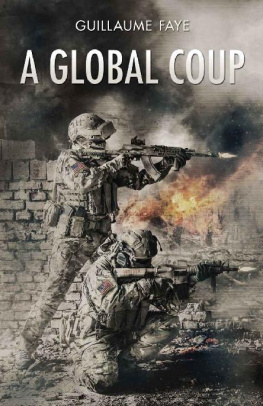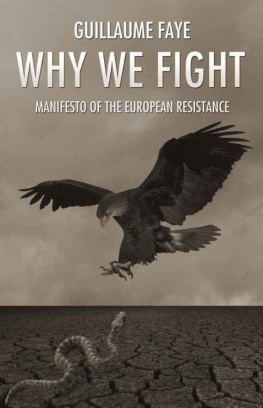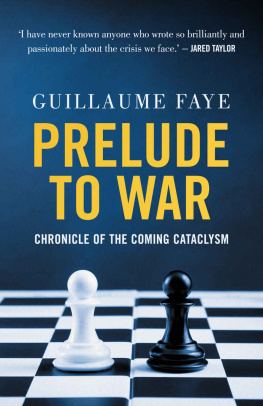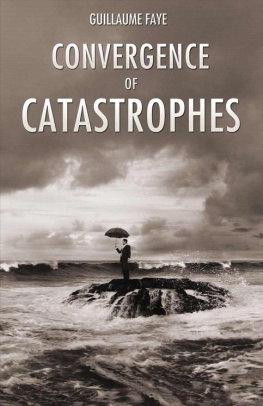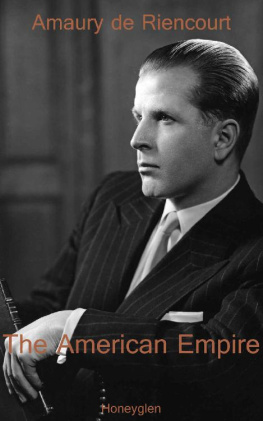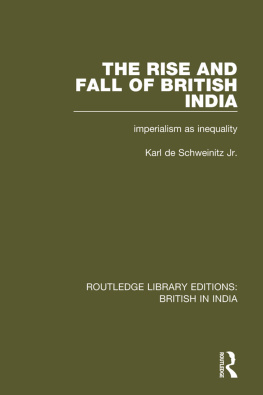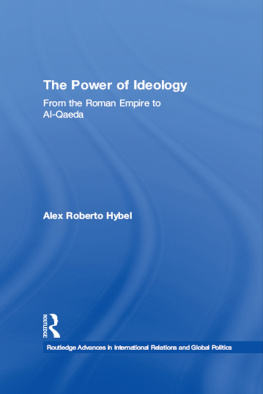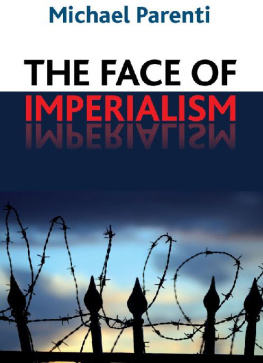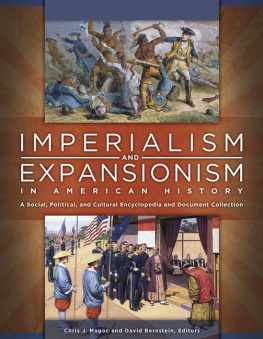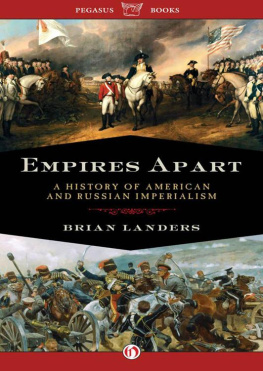Guillaume Faye
A Global Coup
Arktos
London 2017
Copyright 2017 by Arktos Media Ltd.
All rights reserved. No part of this book may be reproduced or utilised in any form or by any means (whether electronic or mechanical), including photocopying, recording or by any information storage and retrieval system, without permission in writing from the publisher.
Printed in the United Kingdom.
ISBN
978-1-912079-82-7 (Paperback)
978-1-912079-81-0 (Hardback)
978-1-912079-80-3 (Ebook)
Translation
Roger Adwan
Editing
Martin Locker
Roger Adwan
Cover Design
Andreas Nilsson
Layout
Tor Westman
Follow us: Arktos.com | Facebook | Twitter | Instagram
Introduction
What follows is a summary of the views and arguments that I intend to develop in this book.
Since the disappearance of the USSR, the classic form of American imperialism has been replaced by a New American Imperialism (NAI). The latter is of a far more brutal, straightforward yet clumsier kind, because it overestimates its own power.
The campaigns that have taken place in Serbia, Afghanistan and ultimately Iraq have established the ever-increasing power of the NAI, whose initial formulation actually predates the 9/11 attacks. Ideologically, it is supported by the neoconservatives , who currently hold the reins of power and have formed an unprecedented and novel alliance that brings together rigourist Protestant milieus and Zionistic Jewish circles supportive of the Likud. Having said this, in no way do I consider myself to be an anti-Zionist, nor even a Zionist for that matter, since I do not take sides in causes that have no impact whatsoever on me.
What the NAI does is reinforce the USAs self-proclaimed messianic legitimacy, which aims to impose Goodness upon the earthi.e. its own political and social modeland combat Evil. Founded upon a bizarre ideology that merges Machiavellianism and Bismarckism with a theory advocating the USAs moral predestination, the NAIs strange patchwork associates a Schmittian doctrine of power (which serves as its law source) with an anti-Schmittian one that preaches the existence of a single, intrinsically authorised source of power (meaning the USA itself, in what has been labelled unilateralism). All this while simultaneously combining certain Kantian and Hegelian philosophical elements (which had hitherto been incompatible) with a few snippets of isolationism, unbridled interventionism and a neo-Keynesian, perhaps even neo-autarchic economic dirigisme, paired with the pursuit of an ultra-liberal and highly hypocritical global policy.
The NAIs global, novel and original doctrine follows three central geostrategic axes: the principle of unequal bilateralism , the deficient sovereignty theory, and the concept of legal recession and declining international institutions.
First of all, according to the principle of unequal bilateralism, in no way does the USA strive to establish a global government. Instead, it takes heed of the fact that the world is now divided into two parts: on the one hand, theres the USA, with its sphere of new European vassals, meaning Great Britain, Poland, Italy, Spain and so on, while on the other, we have the so-called Rest of the World (ROW). The USA is thus no longer the leader (or conductor) of the free world, but its actual ruler , i.e. the police force that governs all other peoples and nations. It does not consider itself at all to be the principal Crusader of western civilisation, nor the first rock upon which a democratic, global and liberal state can be founded (in harmony with Carters doctrine). Instead, it thinks of itself as the sole superpower with the right to arrogate to itself the maintenance of planetary order in a manner that, above all else, serves its own interests, but automatically also those of the other nations which, to some extent, wallow in obscure ignorance. Europe is envisioned to be the empires first realm, in the same fashion that Rome looked upon its closest allies, the foederati .
The NAI thus rejects and dismisses Samuel Huntingtons views regarding a clash of civilisations, as well as the ideas defended by Francis Fukuyama with regard to the end of history and the UN s global government.
As a result of this, the doctrine of deficient sovereignty postulates that the moment a certain state succumbs to deficiency (meaning that it becomes part of the axis of evil), it is considered a rogue state , a heinous state against which none but the USA has the duty to intervene and thus guarantee its own security and, on a secondary level, that of the surrounding world. The criteria that this deficient sovereignty resorts to are of three kinds:
1) The presence of evidence or, in some cases, mere suspicion that one foments or supports terrorist activity.
2) The possession of weapons of mass destruction.
3) The presence of a political regime considered tyrannical, dangerous, etc.
No country is thus, theoretically speaking, immune from inclusion in this black list.
The third doctrine is that of legal recession and the decline of international institutions, meaning the UN, of course, but lately also NATO. The NAIs ideologists have now taken heed of the fact that the United Nations is a rather useless organisation (a previously Gaullist acknowledgement) which cannot maintain peace and that international legality itself lacks the necessary efficiency. This deficient legality must therefore be superseded by a more efficient one that of the United States.
The NAI thus draws its conceptual inspiration from every conceivable source: a bit of Metternich here (in memory of Kissinger, perhaps?), a little restricted sovereignty inspired by Brezhnevs communist doctrine there, etc. Most of all, however, one notices a transition from an implicit and indirect form of imperialism to a different kind, one that is marked by explicitness and directness. What the NAI actually offers is an uninhibited kind of imperialism. The pangs of the Vietnam war have long been forgotten.
In terms of ambition, the NAI far surpasses traditional American imperialism, i.e. the same overly cautious imperialism which Nixon, for example, adhered to. Both its aims and its means are thus comparatively higher in number.
With regard to the NAIs ambitions, the military campaign in Iraq has demonstrated that it is not merely a question of securing oil reserves, but also a matter of transforming Middle-Eastern Muslim countries into democratic vassals and, above all, establishing a security belt around the Jewish state, a state that now finds itself in a desperate situation, even if it has not necessarily lost the fight yet thanks to the immemorial tenacity of the Jewish people. The NAIs main objective, however, is to neutralise the potential birth of a European power stretching along a Paris-Berlin-Moscow axis, a power that I have christened Euro-Siberia and whose existence embodies a genuine nightmare for the American thalassocracy. There is, of course, a further objectivethat of neutralising the increasing power of India and China. The NAI thus wages war on all fronts.
The NAIs methods are global in character, and it resorts to all available means, including the strengthening of the Pentagons powers; the reinforcement of military-industrial facilities; a global control policy over all information networks; a strategy to weaken and dismantle the European Union that relies particularly on encouraging the massive Islamic presence on the latters soil (by advocating Turkish E.U membership, supporting the Muslims in the Balkans, calling for the establishment of a multiracial Europe, and so on); and the seduction of Central European states (which were previously under Soviet influence) in an attempt to turn the area into a protectorate. What should be noted is that the NAI has no intention whatsoever to combat Islam and the Third World. Its ambition is rather to exploit them both in its struggle against Europe and rob the latter of its identity.
Next page
